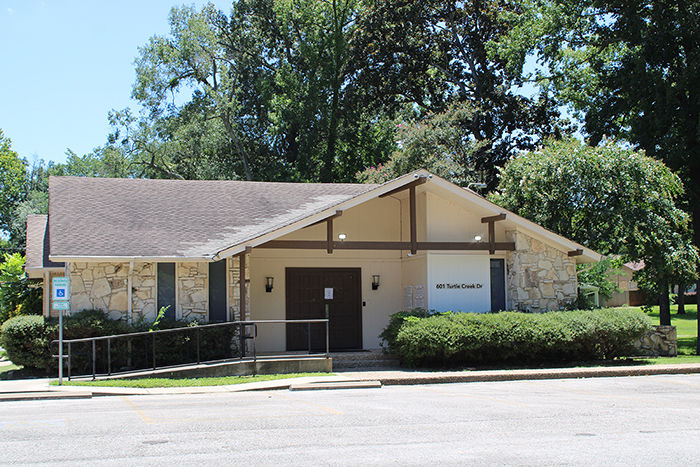East Texas hospitals say they will comply to executive order requiring hospitals to ask immigration status
Published 8:33 pm Saturday, December 14, 2024

- Titus Regional Medical Center is shown July 12 in Mount Pleasant. It is among the East Texas hospitals making adjustments to ensure conservation of IV fluids and supplies. (Les Hassell/Longview News-Journal File Photo)
The Texas governor’s executive order requiring hospitals to ask patients immigration status has been in effect for a month. East Texas hospitals say they will comply.
However, policy experts say this will affect mixed-status families and cause people to not seek healthcare when they need it.
Trending
Although Texas hospitals are required to ask patients their immigration status, people are not required to answer. The Children’s Defense Fund – Texas is encouraging everyone — whether they are a permanent resident, United States citizen or undocumented — to decline to respond.
“We’re encouraging everybody to decline to respond when they’re asked these questions as a way of protecting all of our rights to continue accessing medical care, and as a way of normalizing that so seeking care is not an intimidating experience for our undocumented neighbors,” said Trudy Taylor Smith, Esq., Administrator of Policy and Advocacy at Children’s Defense Fund – Texas.
Due to the number of mixed-status families living in Texas, the order will have a ripple effect. If a parent is undocumented and fearful, they may hesitate to take their child to the hospital. There are more than one million children who have at least one parent who is undocumented, according to Smith.
“Texas is home to an estimated population of 1.6 million undocumented immigrants, and many of those folks live in mixed status families where they’re married to US citizens, they’re raising US citizen children.”
Local hospitals in Northeast Texas said they will adhere to the order. In a statement, Christus health stated they will “comply with the order.”
“We are committed to our mission of extending the healing ministry of Jesus Christ, and as the order states, any response to these information requests will not affect patient care.”
Trending
In a statement, UT Health East Texas said they will follow the order.
“UT Health East Texas is committed to providing the highest quality care while adhering to all legal and regulatory requirements,” said UT Health East Texas in a statement via email.
Titus Regional Medical Center — located in Mount Pleasant — responded before the order went in effect in August. After learning about the order, they reached out to the Texas Hospital Association (THA) and Texas Organization of Rural & Community Hospitals (TORCH) for guidance and clarification. They plan to continue working with the community, according to their statement.
“As an independent rural mid-size vital community hospital, we collaborate closely with our local community to ensure the needs of all segments are identified, understood and care provided to them twenty-four by three hundred and sixty-five,” said Titus Regional in a statement via email.
What is Executive Order GA-46?
The executive order requires the Texas Health and Human Services Commission to direct hospitals to collect information about the immigration status of patients and report the data to the HHSC quarterly. With this information, the HHSC will be able to make annual reports beginning in 2026 to the governor, lieutenant governor and the speaker of the Texas House of Representatives on the total cost of inpatient and emergency care provided to “patients who are not lawfully present in the United States,” according to Smith and the order.
“This order doesn’t change your rights to access emergency care, regardless of what status you have, no one should allow this order to make them afraid to seek care for themselves or a loved one when they need it,” Smith said.
Who is affected by this order?
Public hospitals are affected by this order. In addition, facilities that receive Medicaid and CHIP funding are somewhat affected, according to Smith.
How does this information affect access to healthcare?
The data will be reported in aggregate. This means the information reported will not include identifying data. In addition, people still have the right to access healthcare. The executive order does not impact quality of care, Smith said.
“Everyone, even under this order, continues to have a right to access emergency medical care regardless of their ability to pay or their immigration status, that is protected under federal law,” Smith said.
What rights do people have?
Although hospitals are required to ask patients’ immigration status, patients are not required to answer. Patients have the right to decline to answer, Smith said.
What broad implications does this order have?
Despite the law protecting rights to access to healthcare and the data being collected in aggregate, Smith is concerned the executive order will dissuade people from seeking healthcare. After similar legislation passed in Florida last year, it led to widespread fear and reduced access to health services. In contrast to Texas’ law, it explicitly stated disclosures would not result in reports to immigration authorities.
“We’re concerned that this order is going to create confusion and fears that discourage immigrants in Texas and their family members from seeking emergency care when they need it.”
This executive order is part of an increasing trend of singling out the undocumented community. Despite the order being framed as a response to people crossing the border, this is not reflective of current numbers. Border crossings have decreased by 78% since December 2023 and are currently at their lowest since 2020, Smith said.
Many times people do know how much undocumented people contribute to the state. In 2022, undocumented people paid $4.7 billion through state and local taxes, according to Smith.
“People don’t realize that rather than being a drain on our system, undocumented immigrants are contributing billions of dollars to our state government revenue,” Smith said.
In addition to contributing via taxes, there is research that shows undocumented immigrants help subsidize healthcare for other U.S. residents. Often, undocumented immigrants pay for healthcare out of pocket. This is something the executive order does not take into account, Smith said.
“When the order is seeking data to determine how much is the state spending on medical care for folks who are undocumented, they’re not subtracting from that the amount of money that undocumented patients themselves pay to cover the cost of that care,” Smith said.






